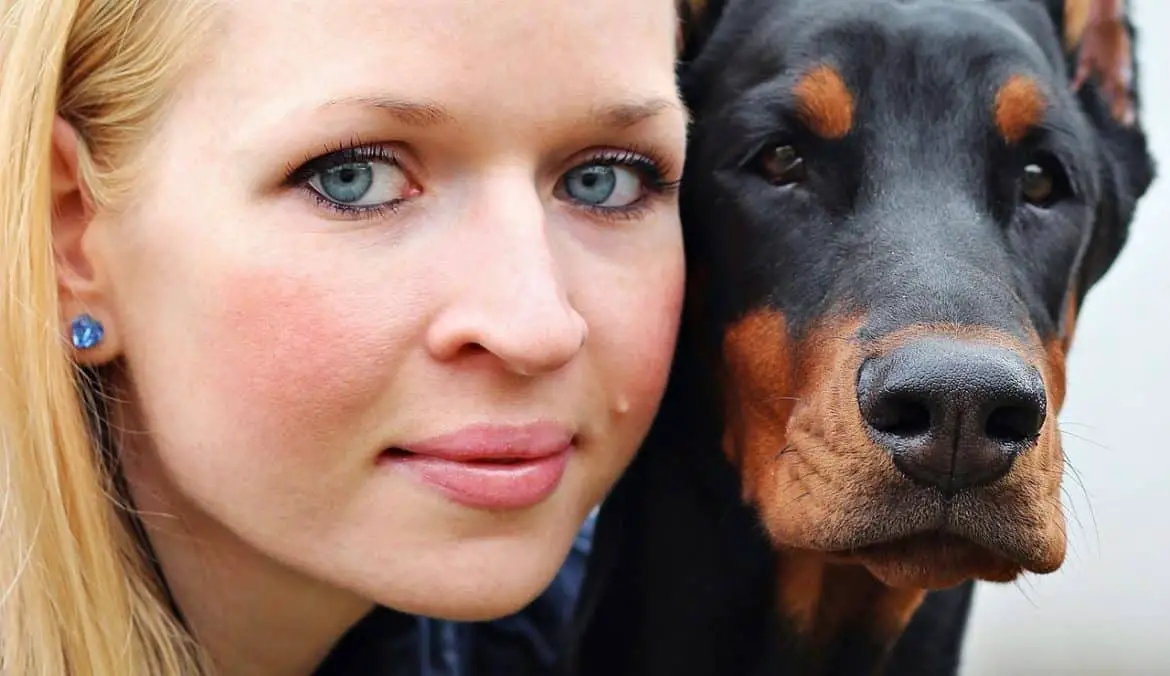
This is the first guest post I have added since opening up the blog to other writers. I have been interested in Dogs for Personal Protection for a long time, and at one time did a little work helping train some protection dogs, but I realized I don’t have the attention to detail that it takes to be successful. This is one area where you need some help and guidance from someone with lots of experience.
Dogs for Personal Protection
Any of us are susceptible to an invasion of our home or personal space. Having another soul to rely on can make a situation a lot less frightening and a lot more safe. A dog, for example, can be not only an extremely loyal companion, but an excellent source of security.
General Positives and Negatives of Owning a Dog for Protection
Positives
Safety – if you live in a big city, bad neighborhood, etc. having a dog can be a constant reassurance of safety, and in general the image of a dog being with you makes you less susceptible for attack
Confidence/fulfillment – achieving goals with your dog is motivating and helps you feel accomplished
Companionship/emotional support – having a dog can be highly stress relieving
Socializing – you meet a host of people when involving yourself in training dogs
Negatives
Responsibility comes with owning a dog – and that means time on the owner’s part. You gain respect and loyalty through your efforts, however, which is well worth it.
Expenses, such as training and maintenance costs
There’s a chance of aggression in a high-drive dog if mis-trained or improperly bred
Frustration and difficulty – dogs can be very hard to understand for the uninformed, and it can be difficult to help them learn something when you are unaware of how they learn. At times, dogs also can be stubborn, which is why consistency is extremely important. Getting all others who may live with the dog on the same page can also be cause of further hindrance.
Remorse if your dog is hurt or killed from protecting you
Choosing a Breed
If you don’t already have a dog, or are considering obtaining one for safety, than there are some more capable of protection than others. It’s also important that you find a reputable breeder, preferably one specializing in high drive dogs (dogs that are not docile, but love to work), with a healthy and impressive pedigree.
Great breeds to work with for personal protection:
- German Shepherd
- Malinois
- Dutch Shepherd
- Rottweiler
- Mastiff (variety)
- Pit Bull (variety)
- Doberman Pinscher
- Dogo Argentino
- Cane Corso
- BoerBoel
- Ridgeback (variety)
- Akita Inu
These such dogs could be effectively trained to not only watch, but act. There are certain breeds designated to alert (many small breeds), and others to react quickly – the protection dog. The German sport Schutzhund (literally “protection dog”) has rules and a scoring system which are effective standards of everything a protection dog should be able to do – obedience, tracking, and protection. Tracking is often the least interesting when dealing with personal protection, and more appealing to police and investigative work.
Expenses
There are drawbacks with this method of safety assurance, such as the costs of the dog itself (a good German Shepherd on average is $1300.00), maintenance, as well as having the patience, time, and money to train. You’ll need the proper equipment, such as body suites or hidden arm sleeves, which are rather expensive, and not easy to make from scratch.
Preparation
Giving the dog the ultimate amount of exposure possible is also necessary, such as preparing him/her for as many situations as you can. Mondeo and French Ring Sport are great sports which challenge the dog’s courage and reaction traits.
Situations to be prepared for:
- Yelling/threatening
- Gun Shots
- Attacking from a car window
- Assault on owner or dog itself
- Masks (on the offender)
- Attacking in narrow spaces
- Purse snatching
- etc.
The more varied the environment and situation the dog is trained in, the better suitable he/she will be as an attack dog.
Considering a Dog for Protection?
The first place to start is to find a reputable breeder, with proper papers to prove a satisfactory bloodline in the dog. In America, AKC certified dogs do not mean a dog is of good quality, so keep this in mind. Germany, on the other hand, has very strict breeding practices in their country as far as qualifications go. It’s best to do your research beforehand. Note that if you already have a dog, it is very possible to train him/her in protection – it just may take more time and effort. It will not always happen, as some dogs are simply just too docile/submissive.
Secondly, you should supply yourself with proper equipment and a trainer if you don’t wish to self-educate. Good trainers usually have titled dogs in protection sports, or have a list of references of the work they’ve accomplished. If you get a puppy, train early!
Dogs have shown to be courageous hero’s in wars, police work, and for personal guarding. Most dogs have an intuition in and of themselves, and are aware of their surroundings when need be, making dogs an excellent form of defense.

